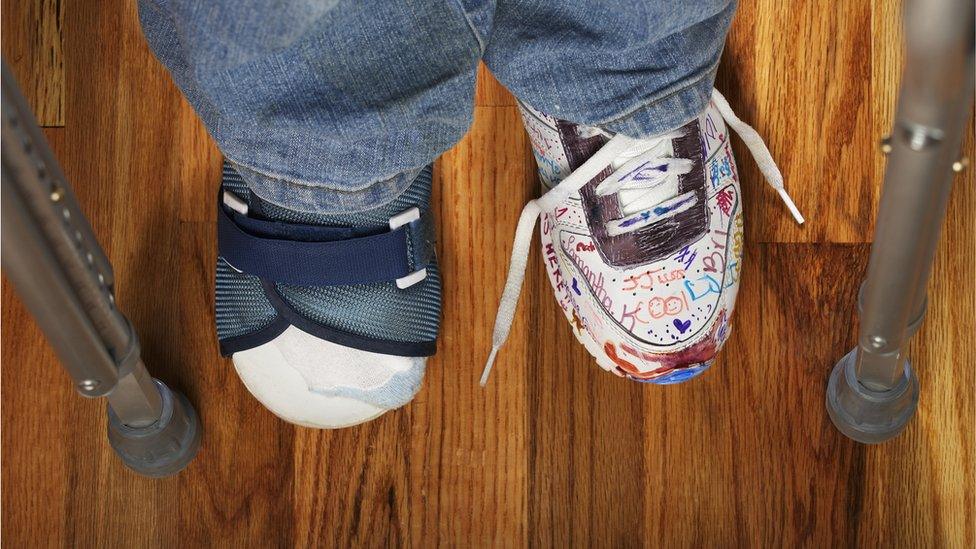Aberdeen scientists identify 'club foot' gene
- Published

Scientists at the University of Aberdeen believe they have identified a gene which may cause the most severe cases of club foot.
The condition can require lengthy treatment, including putting the feet in a cast, surgery, and wearing specialised boots.
In severe cases the foot can bend back again, requiring more invasive surgery.
The team behind the gene discovery believe it could reduce unnecessary treatment.
Scientists say the causes of club foot are poorly understood but it is thought to be a neuro-muscular problem associated with muscle weakness in the legs during development.
Gene mutations
Aberdeen University geneticist Prof Martin Collinson said: "This is, hopefully, another piece in the puzzle of what causes club foot in humans.
"Our hypothesis is that probably for most human club foot patients, it's not just one gene that goes wrong, there are probably predisposed mutations in several genes in these pathways and they add up to eventually cause muscle weakness.
"The next stage is to look at DNA samples taken from human club foot patients and screen them to see if there are mutations in these pathways."
About one baby in 1,000 born in the UK is affected by club foot. Half of those affected have the condition in both feet.
Prof Collinson added; "Club foot is commonly treated successfully using the Ponseti method (using a cast) but it may be that the feet of children with these gene deformations will just revert back once treatment is finished.
"In theory, if we could screen children for these genes before treatment starts, then they could avoid years of unnecessary interventions."